Eternal Summer: Six Ambient Albums for Blissing Out
It feels like we were just talking about the dawn of spring, and suddenly here we are – at the precipice of summer.
While I typically find myself to be a “fall guy,” I have to say that I’ve warmed up to summer (nyuk nyuk nyuk). Part of it might be having a kid and getting to relive the excitement of the season through her eyes. Already our jeans are covered in rainbow chalk dust, dinners are happening outside, and I bought a “crazy arm” sprinkler head that kind of lived up to its name a little too much and soaked the whole family.
In the summer, I also feel my music taste shifting a bit too. There’s the constant searching for the elusive “song of the summer,” and generally things tend to get a little more upbeat. It’s a good thing. Summer nudges my taste toward hip-hop, soul, and more upbeat rock — a helpful contrast to my usual impulse to wallow in sad songs forever (if you see me streaming Songs: Ohia, you know I’m going through it).
But where does ambient fit into all of this? Is it something you just put aside until the dreariness returns in the fall? In my opinion: no, not at all. Ambient by its nature is expansive and fits itself into all sorts of moods and genres. Summer, like every other season, is the perfect time for ambient. You just need to find the right records to match the weather and match your pace. Ambient patented “peacefulness” can be a boon, not just to accentuate the bliss in the air in summer but also to quell summer stresses: weekends rapidly filling up with plans, exhaustion from the heat, and the stress you get when you see the water bill enhanced by your “crazy arm” sprinkler.
This is not a complete list, but these six albums I’ve found to be a perfect match for the different facets of summer. From the orange glow of Laraaji to the purple sunsets of Arushi Jain, I think there’s summer to be heard and felt in all of these records.
Ambient often gets mischaracterized as exclusively slow, methodical, and with a quiet somberness. Of course, there are many times where it is. But ambient encompasses a much wider spectrum of ideas and sounds. If ever there were an artist to counterpoint the quiet somberness, it would be the rich, playful radiance of Laraaji.
There are many Laraaji records I could pick for a list like this, but his most famous work is a great entry point. It’s poignant that this record has a place in Brian Eno’s famed Ambient record series. Eno’s Ambient 1: Music for Airports and Harold Budd’s Ambient 2: The Plateaux of Mirror both established the genre in its vastness – Eno evoking with sparseness and Budd with decadence. With Ambient 3: Day of Radiance, Laraaji brought in a new element: joy.
Performed Laraaji on his electronic-modified zither, Laraaji creates a sonic world that is brimming with light. The opening three-part suite “The Dance” contrasts the typical assumptions of ambient. The music is busy, almost a little frantic, as Laraaj’s mallets bounce across the zither. It’s brimming with life. And as you embrace the music, what once maybe seemed “hectic” soon settles into a beautiful, dreamy groove. It’s not the music so much changing, it’s our perception. And, getting back to the theme, it feels like the joy and ecstatic energy of a new summer day. The back half of the record, the two-part “Meditation” suite, cools things off more into that “calmer, gentler” ambient. It’s the cool off in the shade after jumping in the lake, the steam coming off your body and concrete on a hot afternoon.
It’s music that will allow you to, as Laraaji would say, “bliss out for days.”
This is the album that first really got me thinking of the idea of “summer ambient.” I came across it last, well, summer (though it first came out in March of 2021). The compilation from Swedish label Les Disques Bongo Joe collects works from Spain’s electronic underground music scene. Some of this music was rare even in its day, made by artists never quite got their due. Miguel A. Ruiz, Finis Africae, Javier Segura, Suso Saiz, and so many more.
Much of the music dispels the notion of ambient being devoid of rhythm. While there are lots of moments across the record of prolonged drones and whimsical sounds, drums and percussion frequently make appearances. Ruiz’s opener “Transparent” finds a pulse in its sampling, looping what sounds to be piano and bass at jagged rhythms. Finis Africae’s “Hybla” centers on a hypnotic drum beat and vocals that repeat the same melodic phrases over and over again. Even the less rhythmic tracks like Luis Delgado’s “El llanto de Nouronihar” or Jabir’s flute heavy “Vela Pro Las Alturas De Xauen” carry a melodic grooviness. It’s ambient music you can almost dance to.
La Ola Interior both feels like the cooldown after a night on the dance floor as well as a day spent locked inside your hot apartment, wasting away in front on the fan while you space out to records. In truth, it’s becoming one of my favorite ambient releases generally. There are so many great artists to be discovered and explored deeper on this compilation.
Robert Fripp and Brian Eno both have quite a few masterpieces under their belts separately. So when they came together in the 1970s, it’s no surprise they created some groundbreaking records. The early Fripp & Eno albums, while beautiful and consuming, almost might be hard to understand why they’re so groundbreaking by today’s standards. These days, it’s pretty easy to loop a guitar and make some “cool vibes.” But that’s just the thing – Fripp and Eno were literally creating the technology to make that possible when they worked on these records. Eno would play Fripp some tape loops he made and Fripp would start to play guitar over it. While that happened, Eno would then record and loop Fripp’s guitars back over them as well as experimenting with tape delay to continue to effect the sound. The poet Joanna Walton, Fripp’s partner at the time, dubbed this process “Frippertronics.”
They started working with this method on their first collaborative album No Pussyfooting in 1973, but mastered it with the breathtaking Evening Star in 1975. Where No Pussyfooting was harsher, darker, and had some…questionable titling, Evening Star feels like a beautiful shimmer. It has that feeling of twilight on a warm day, a mirror of the image on the album’s cover. I come back to the album’s title track a lot. The song swoons and expands like a far off horizon. The name itself paired with the melancholy of Fripp’s guitar evokes that passing feeling of a summer day well spent and the sadness that comes with knowing this moment will soon be gone.
Well, summer is right in the name here, isn’t it? Need I say more?
Jörgen Kjellgren is based out of Stockholm, Sweden. He’s part of the group Little Boxes and apparently also leads guided meditations, which makes sense once you hear his music. I came across Invincible Summer when it came out in August 2020, during the pandemic. Of course, this was a very weird summer. But Kjellgren’s music felt like an escape. Soft and bright, Invincible Summer carries the magic of time spent outside, summers getting lost in the woods, the grass and dirt smooshing beneath your feet. It feels like fresh air filling your lungs.
"These tracks are a love letter to my wife and our family,” Kjellgren says in the album’s Bandcamp description. “It stems from memories of moments and feelings I've collected over a few years on our summer vacation travels throughout Sweden and southern Europe. The title Invincible Summer comes from a quote by Albert Camus."
Technically, this album can be played any time of year, but I find it sounds best in the summer. Arushi Jain composed this record with the intent that it be played at sunset.
“You know that moment when the sun is bidding farewell to the sky, and the colors turn into beautiful hues of purple and pink and everything in between?” She says in the album’s notes. “That is the moment that this album will shine the most. The deeper you listen, the more shades you’ll see.”
Through modular synthesizers and her voice, Jain puts a soundtrack to one of the most ethereal things out there – the sky. The way the album moves from the gentle wandering of opener “Richer Than Blood” through the pulsing of “Look How Far We’ve Come” and the shimmer of “The Sun Swirls Within You” is breathtaking in how it captures that feel of the changing hues in the sky. The transition into the gloaming with the standout track “My People Have Deep Roots” is overwhelming, the bass rumbling like a cosmic surge beneath her enchanting singing. By the time things settle down into the closer and title track, “Under the Lilac Sky,” that sense of peace you feel staring at the sunset finally takes over, before it finally fades away as the purple skies give way to night.
Again, this album’s concept works any time of year. But summer sunsets are a special thing, and this album exudes that feeling masterfully.
All of these lofty descriptions of summer, and we’re forgetting one of the most important: the perfect day. The kind of day that just feels right from the moment you wake up. A day of ease, beautiful weather, good food, friends, an air of kindness around every interaction. These days feel rarer as time goes on, and maybe easier to attain when we’re children. But they can still exist. I feel it so intensely on Lionmilk’s brilliant ambient jazz opus, I Hope You Are Well.
Lionmilk is the moniker of Mokichi Kawaguchi. He originally made the album just for his friends and family during the 2020 pandemic. He dropped handmade copies in their mailboxes, a gift to help them through the anxiety and depression of the times. The album got a wider release in 2021 when it was distributed by the brilliant Leaving Records. Despite (or maybe because of) the turbulent times it was created in, I Hope You Are Well is an album brimming with hope. Performed largely on his keyboard along with electronic production and effects, the album is a lo-fi tapestry of love and warmth. When it came out I tried to describe it to friends as a blend of Flying Lotus and Mr. Rogers.
I Hope You Are Well isn’t one-dimensional. It has its moments of melancholy and pensiveness, but even in those times, it feels like it’s trying to resolve into something that leaves it better than it started. I Hope You Are Well feels like an embodiment of those perfect summer days. Where everything comes easy, life moves slow, and for even a short period of time you can put away troubles and embrace your own bliss.
Thanks for reading. Dig these summer albums? Why not share with a friend?
Look, I’ve gotta confess. I haven’t kept close tabs on anything related to Drain Gang – Bladee, Ecco2k, or any of the Swedish experimental hip-hop that’s blown up in recent years. I was quick to dismiss it as “just not my thing.” But I’m also ready to confess when I may have been wrong. And this latest single from producer Mechatok may just change my mind.
I spent a whole afternoon just listening to this song on repeat. And honestly, it still doesn’t feel like something I would be into. But I love it. And I kind of love when that happens, when your own taste pushes against itself and you’re forced to try something new.
Mechatok is a German producer who isn’t directly affiliated with the Drain Gang collective that Bladee and Ecco2k claim, but he’s worked with both artists and is more or less a frequent collaborator. He’s gearing up for his solo debut album and he’s brought his friends along. The song is a high-octane pulse of synth stabs that feels like they’ve just crawled their way out of a rave. Bladee leads the way with a blurry, glitched out verse that sets the tone for Ecco2k to just completely tear it up with some excellent vocals. I love the punk edge as Ecco and Bladee taunt, “And to you so-called pop-stars/I give my deepest condolences for your lost cause/R.I.P to those fallen off the charts/I know they're looking down on us.”
Also, Mechatok’s complete lack of expression throughout the video kills me, especially considering the title. I feel like I’ll be playing this all summer (when I’m not listening to all those ambient records I just mentioned above, of course).
LISTENING: Lifeguard - Ripped and Torn
Indie rock wunderkind Kai Slater already blew my mind earlier this year with the brilliant Sharp Pins record Radio DDR, only to come back again with another band that’s blowing my mind – Lifeguard.
Where Sharp Pins is focused on tight, beautiful, melodic songwriting, Lifeguard simply rips. Slater plays guitar and shares vocal duties with bassist Asher Case, held together by the furious flurry of drummer Isaac Lowenstein.
Their debut album Ripped and Torn is a masterful act of indie rock left to simmer until it boils over into a beautiful, chaotic mess. Ripped and Torn feels furious, urgent, and alive. The chanting vocals, the massive riffs, the cathartic push and pull – it’s everything I didn’t know I was looking for.
My upcoming book, 20th Century Ambient, is now available for pre-order! If you’ve been enjoying the blend of music deep dives and comics in Another Thought, I think you’ll really love this.
“Through text and comics, 20th Century Ambient searches through ambient music's recent history to unearth how the genre has evolved and the role it plays in our daily lives.”
It’s out November 13, 2025 from Bloomsbury Books. Don’t miss your chance to reserve a copy now.

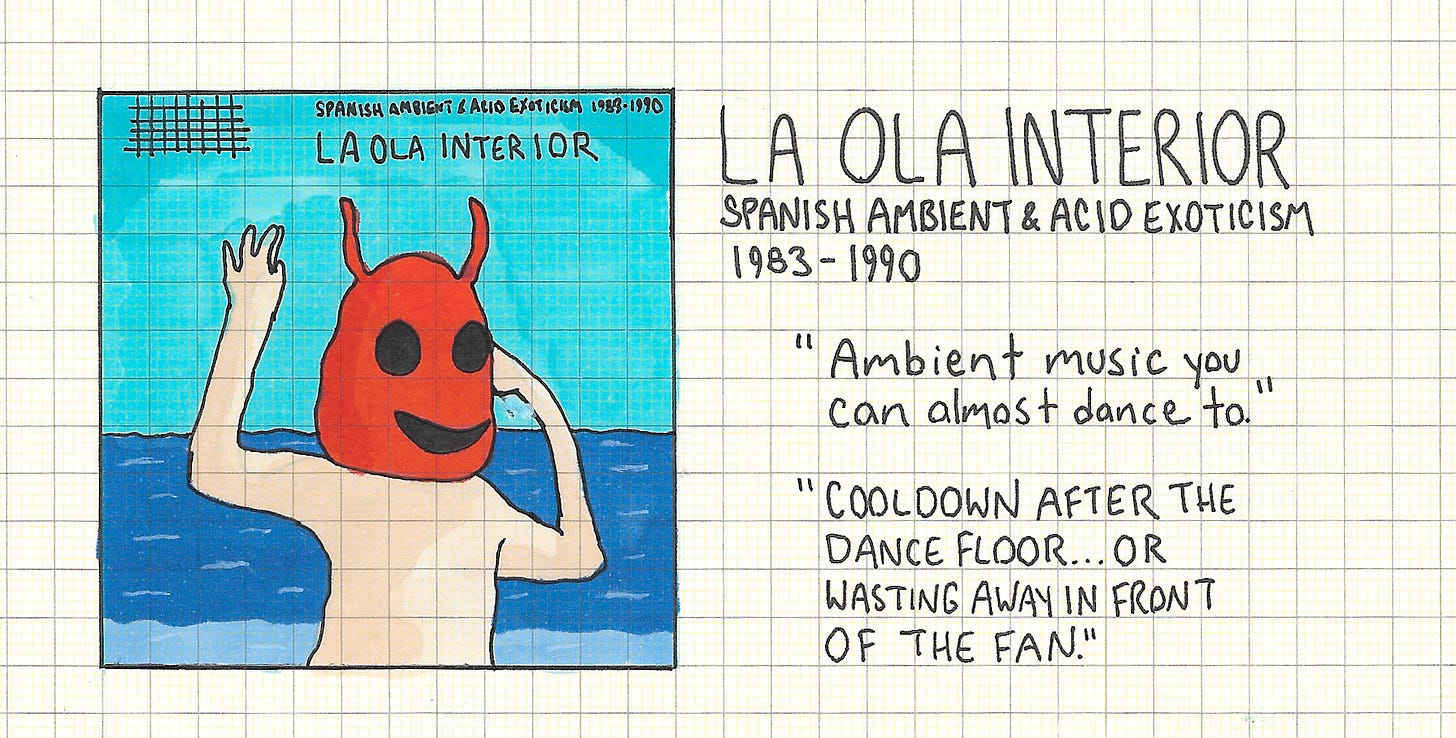

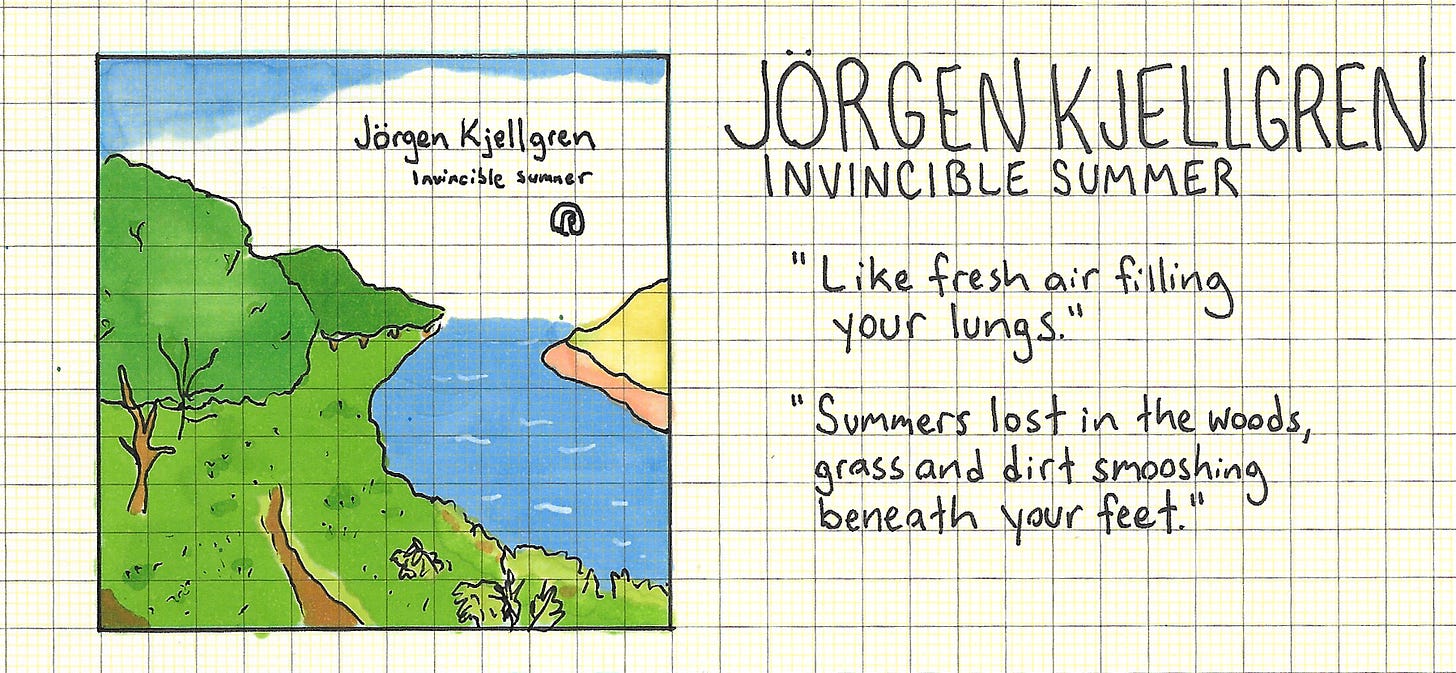



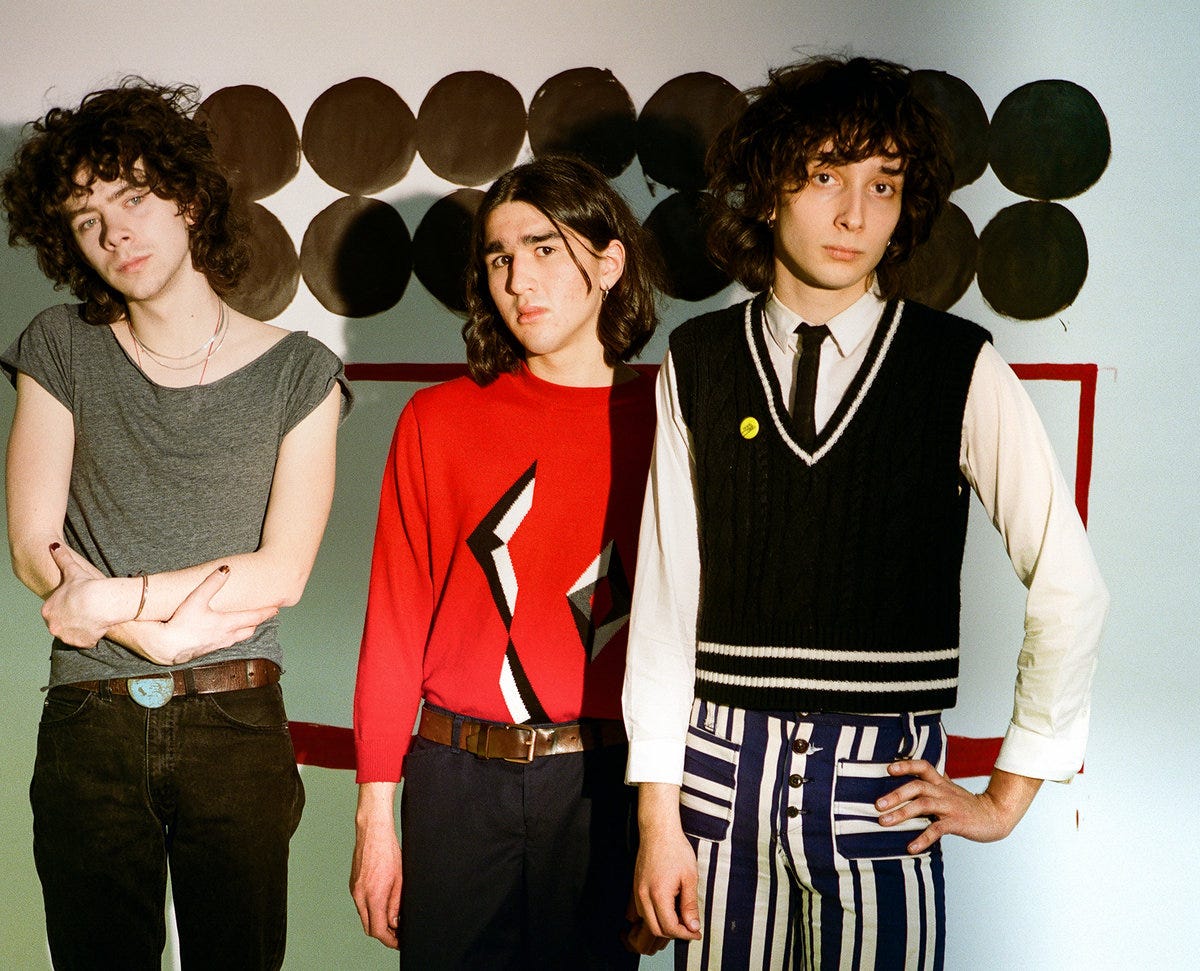
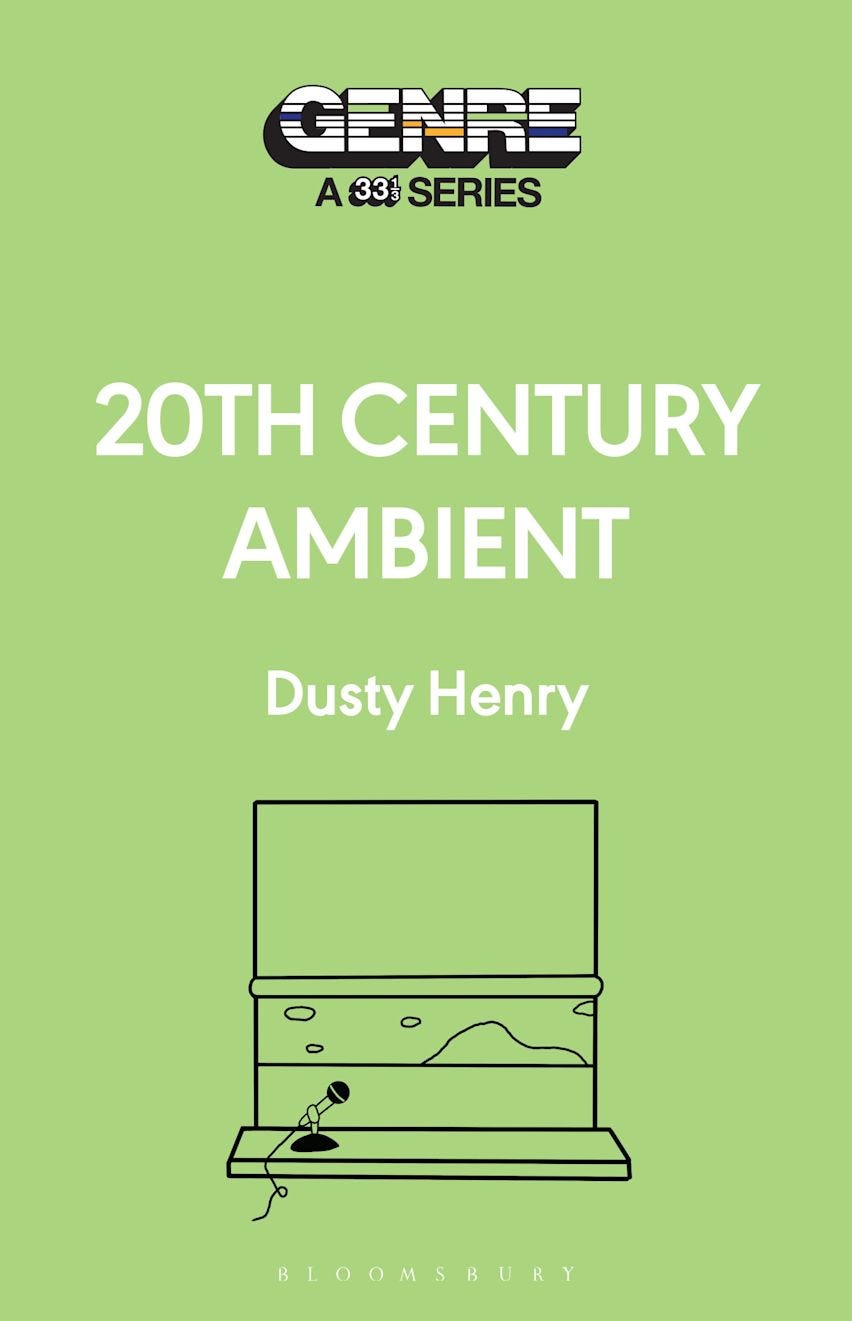








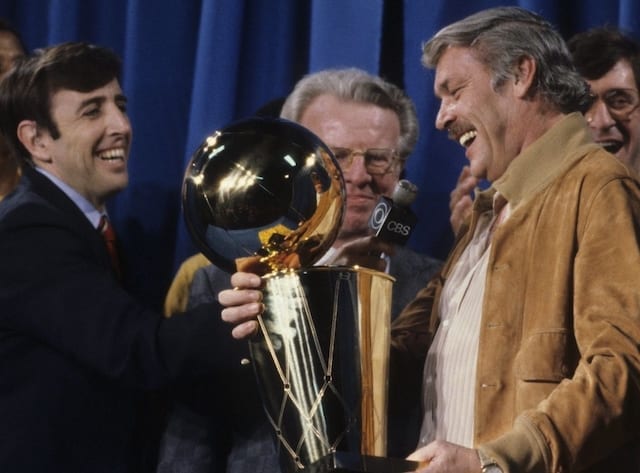
:max_bytes(150000):strip_icc()/Parents-TheFamilyWatch620-fdac379503984c6a90a135f8a21b5b38.jpg)
